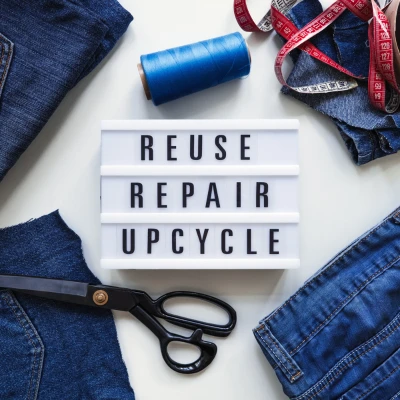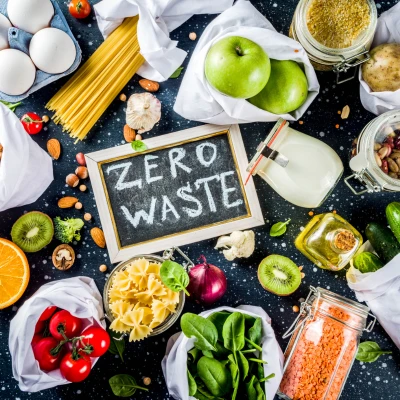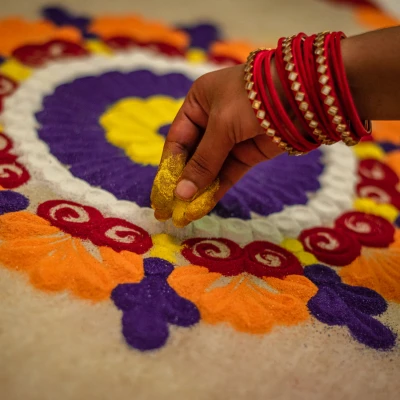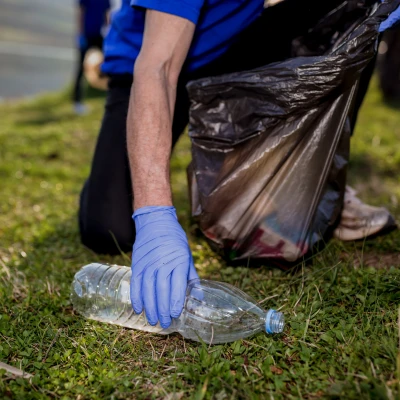10 Sustainable Hacks for a Greener Festive Season
Celebrate India's Festivals with Eco-Friendly Choices: A Guide to Cleaner and Greener Celebrations"
The festive season in India is a time of joy, celebration, and togetherness, with vibrant traditions that bring communities and families closer. However, alongside these celebrations comes the challenge of environmental degradation, from the excessive use of plastics and waste generation to high energy consumption and pollution. With climate change becoming an ever-present concern, it’s more important than ever to rethink how we celebrate and strive to make our festivals greener and more sustainable.
In this blog, we’ll explore ten sustainable hacks to help you celebrate this Indian festive season in a way that honors the planet while keeping the festive spirit alive. Whether Diwali, Durga Puja, Christmas, or any other festival, these eco-friendly practices can significantly reduce your carbon footprint and promote a cleaner, greener future for all.
1. Opt for Eco-Friendly Decorations: Go Natural and Reusable

Festivals often mean a house full of decorations, but most mass-produced decor is made from plastic and other non-biodegradable materials that harm the environment. This year, opt for eco-friendly and natural materials for your decorations.
Use flowers, leaves, clay, bamboo, and paper for adornments. Handmade crafts using fabric or wood look beautiful and can be reused year after year. For lighting, replace single-use plastic fairy lights with eco-friendly LED lights to save energy while creating a festive ambiance.
Many Indian households have shifted to using terracotta diyas instead of plastic or metal ones, supporting local artisans while reducing environmental impact.
2. Say No to Firecrackers: Celebrate with Sound and Light Without Pollution

One of the most significant sources of pollution during festivals like Diwali is the use of firecrackers. While they bring joy, they also contribute to air pollution, noise pollution, and waste. Instead of buying fireworks, celebrate with community light displays or sound-free alternatives like traditional music, dancing, or eco-friendly laser shows.
Cities like Delhi and Mumbai have been encouraging “cracker-free Diwali” campaigns, with citizens participating in public eco-friendly celebrations such as lighting homes and temples with LED lights or organizing green community gatherings.
3. Choose Biodegradable Tableware: Avoid Single-Use Plastics

During festive feasts, single-use plastic plates, cups, and cutlery are often used for convenience, contributing to massive amounts of non-biodegradable waste. Instead, use biodegradable or reusable alternatives like plates made from areca leaves, bamboo, or sugarcane bagasse. For smaller gatherings, use reusable steel, glass, or ceramic tableware.
Cafes and restaurants across India increasingly use biodegradable tableware, and this trend can quickly be adopted at home. It ensures that celebrations are not only joyful but also eco-conscious.
4. Create Your Sustainable Gifts: Homemade, Ethical, and Minimal Waste

Gift-giving is a cherished part of Indian festivals, but it’s also an area where we can make more eco-conscious choices. Instead of buying mass-produced, heavily packaged gifts, opt for homemade, ethical, or eco-friendly alternatives. DIY gifts like homemade candles, jams, or knitted clothing have a personal touch and minimize waste.
If you prefer buying gifts, choose brands that promote sustainability and fair trade practices. You could also give experiences like cooking classes or eco-tours, which don’t involve packaging waste.
Many Indian eco-conscious brands offer sustainable products such as organic skincare, handwoven textiles, and eco-friendly home goods, perfect for gifting during festive seasons.
5. Go for Sustainable Wrapping: Upcycle, Reuse, and Innovate

Gift wrapping contributes to a significant amount of waste during festivals. Instead of using glossy, non-recyclable wrapping paper, try using sustainable materials. You can wrap gifts in reusable cloth bags, newspapers, or old scarves (Furoshiki-style wrapping). Repurpose old packaging material, or choose recycled and biodegradable gift wrap.
Many Indian NGOs and eco-conscious brands sell sustainable wrapping materials, including recycled paper and cloth, that can be reused long after the festival.
6. Prepare a Zero-Waste Feast: Reduce Food Waste and Source Locally

Festivals in India are synonymous with feasts but can also lead to food waste. Plan your meals carefully to avoid over-preparation, and store leftovers responsibly to ensure they don’t end up in landfills. Composting food scraps is another excellent way to manage waste sustainably.
Additionally, support local farmers and organic markets by sourcing ingredients from them. This will reduce the carbon footprint associated with food transport and support the local economy.
Many households in cities like Bengaluru and Pune have started kitchen composting practices, ensuring that food waste is minimized and turned into nutrient-rich compost for gardens.
7. Use Organic Rangoli Colors and Clay Idols: Avoid Harmful Chemicals

Traditional festivals often involve creating beautiful rangolis and using idols for religious ceremonies. However, synthetic rangoli powders and idols made of plaster of Paris are harmful to the environment. Opt for organic, non-toxic rangoli colors from rice flour, turmeric, or flower petals.
For festivals like Ganesh Chaturthi and Durga Puja, use clay idols that dissolve naturally in water instead of harmful plaster idols that pollute water bodies.
Several NGOs and environmental groups in Mumbai and Kolkata run campaigns promoting the use of eco-friendly clay idols for immersion ceremonies, significantly reducing water pollution.
8. Dress Sustainably: Support Slow Fashion and Handlooms

Festivals are a time to dress in new clothes, but the fast fashion industry is one of the largest polluters globally. This year, consider investing in sustainable fashion by supporting local artisans and weavers. Buy handloom or organic cotton clothing, which is both eco-friendly and promotes traditional craftsmanship.
You can also opt for “upcycling” by reusing old outfits, giving them a fresh look by mixing and matching or swapping clothes with friends and family.
Initiatives like “India Handloom Brand” promote eco-friendly handloom products, ensuring sustainable livelihoods for artisans while promoting environmentally conscious fashion choices.
9. Carpool or Use Public Transport: Reduce Carbon Emissions

Travel is an integral part of the festive season, whether visiting family or visiting temples. However, the use of private vehicles increases carbon emissions. Opt for carpooling with friends or family or use public transportation like buses, trains, or even cycling if the distance is manageable. This reduces the carbon footprint of your festivities and helps ease traffic congestion.
Cities like Bengaluru and Hyderabad encourage citizens to adopt public transport, offering incentives for those who reduce car usage during festivals.
10. Plan Community Clean-Up Drives: Give Back to the Environment

One of the best ways to celebrate a green festival is to organize or participate in a community clean-up drive. After significant festivals like Diwali, Holi, or Dussehra, communities often surround themselves with waste. Rally your friends, family, and neighbors to organize a post-festival clean-up drive to collect and properly dispose of waste, ensuring that streets, parks, and public spaces are cleaner.
In cities like Pune and Chennai, community-led clean-up drives have become common after festivals. Volunteers collect plastic waste, unused materials, and leftovers for proper recycling.
A Greener Way to Celebrate Indian Festivals
Celebrating festivals sustainably means something other than sacrificing tradition or joy. By making simple, eco-conscious choices, we can significantly reduce the environmental impact of our festivities while ensuring that the spirit of togetherness and celebration remains intact. This festive season, let’s all pledge to embrace these green hacks, celebrate responsibly, and protect our environment for future generations. Sustainability is not just a trend; it’s a necessity. Together, we can make every festival a step towards a cleaner, greener India. By implementing these ten sustainable hacks, you’ll make a positive difference in the environment and inspire others to celebrate in eco-friendly ways. Let’s transform this festive season into an opportunity to show our love for the planet.
For more inspiring Blogs, click here

